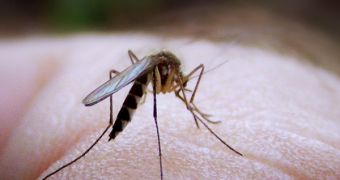Instead of going about protecting people from transmittable diseases the old-fashioned way – through vaccines – researchers at Colorado State University (CSU) say that going for the vectors that carry conditions such as malaria and yellow fever is an easier target for them. That is, instead of curing people who are already infected, they argue that killing mosquitoes, ticks and sand flies is much easier.
Their research is aimed at developing already-existing substances, such as endectocides, into compounds that are potentially deadly for insects. This method benefits from large support in the international scientific community, as cases of vaccine-intolerances continue to increase, as do those of people not reacting to already-established forms of therapy.
"In order to successfully slow the transmission rate of these potentially fatal diseases, we need to reduce the lifespan of the vector, or block them from becoming infected in the first place. One of our goals is to curtail the spread of mosquito-borne diseases through strategic use of compounds, known as endectocides, to target hosts. This new strategy will make blood meals from humans lethal to mosquitoes so they die before they can transmit a disease," explains CSU researcher, Brian Foy, PhD.
He argues that existing genome sequencing techniques now allow scientists to browse more rapidly through the genetic make-up of the vectors, and accurately identify proteins that could succumb to the action of endectocides. These substances are already administered on a large scale to both humans and cattle, to counteract the appearance of worms. "We are working on a vaccine to target tick-protective genes, so when ticks feed on immunized cattle, the vaccine antibodies interfere directly with the biology of the tick and its feeding pattern which results in reduced tick populations," says Oklahoma State University professor, Katherine Kocan, PhD.
This research will be thoroughly presented at the 57th American Society of Tropical Medicine and Hygiene (ASTMH) international meeting, where more than 2,800 physicians and infectious disease specialists will meet between December 7-11 in New Orleans, to discuss the current threats to global health.

 14 DAY TRIAL //
14 DAY TRIAL //